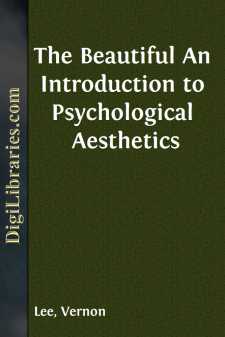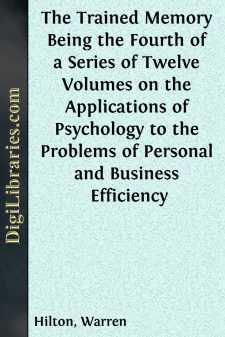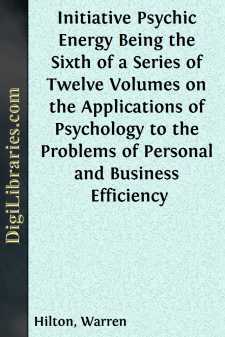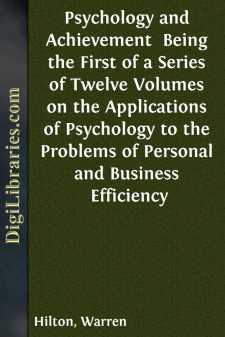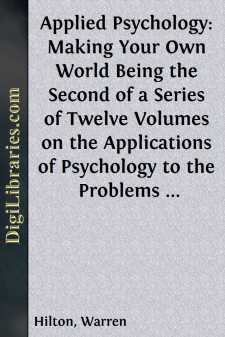Psychology
- Applied Psychology
- Case Studies 2
- Experimental Psychology 1
- General 13
- Human Sexuality 14
- Hypnotism 3
- Physiological Psychology 1
- Psychopathology 1
- Social Psychology 2
Applied Psychology Books
Sort by:
by:
Vernon Lee
CHAPTER I THE ADJECTIVE "BEAUTIFUL" THIS little book, like the great branch of mental science to which it is an introduction, makes no attempt to "form the taste" of the public and still less to direct the doings of the artist. It deals not with ought but with is, leaving to Criticism the inference from the latter to the former. It does not pretend to tell how things can be made...
more...
by:
Warren Hilton
Chapter I Four Special Memory Processes You have learned of the sense-perceptive and judicial processes by which your mind acquires its knowledge of the outside world. You come now to a study of the phenomenon of memory, the instrument by which your mind retains and makes use of its knowledge, the agency that has power to resurrect the buried past or power to enfold us in a Paradise of dreams more...
more...
by:
Warren Hilton
Chapter I MENTAL SECOND WINDSticking to the JobAre you an unusually persevering and persistent person? Or, like most of us, do you sometimes find it difficult to stick to the job until it is done? What is your usual experience in this respect? Is it not this, that you work steadily along until of a sudden you become conscious of a feeling of weariness, crying "Enough!" for the time being, and...
more...
by:
Warren Hilton
CHAPTER IATTAINMENT OF MIND CONTROLThe Man of TomorrowThe men of the nineteenth century have harnessed the forces of the outer world. The age is now at hand that shall harness the energies of mind, new-found in the psychological laboratory, and shall put them at the service of humanity. Are you fully equipped to take a valiant part in the work of the coming years?The Dollars and Cents of Mental...
more...
by:
Warren Hilton
Chapter ITHE TWO FUNDAMENTAL PROCESSES OF MINDMind as a Means to AchievementIn the preceding book, "Psychology and Achievement," we established the truth of two propositions: I. All human achievement comes about through bodily activity. II. All bodily activity is caused, controlled and directed by the mind. To these two fundamental propositions we now append a third, which needs no proof, but...
more...


